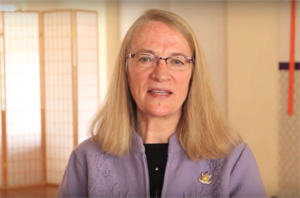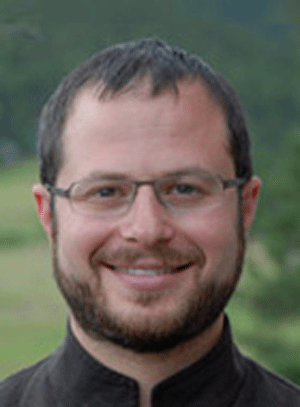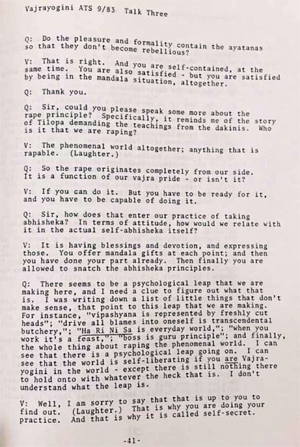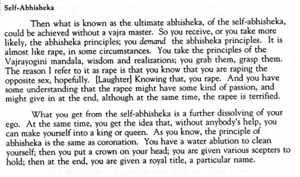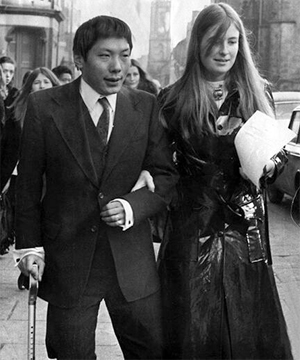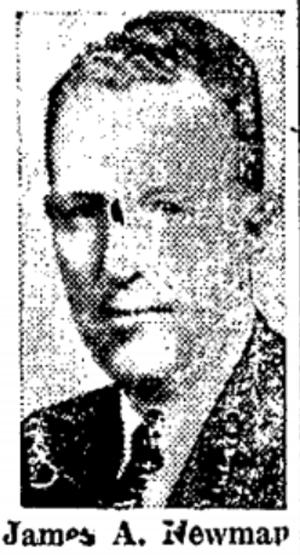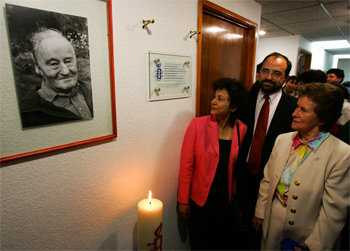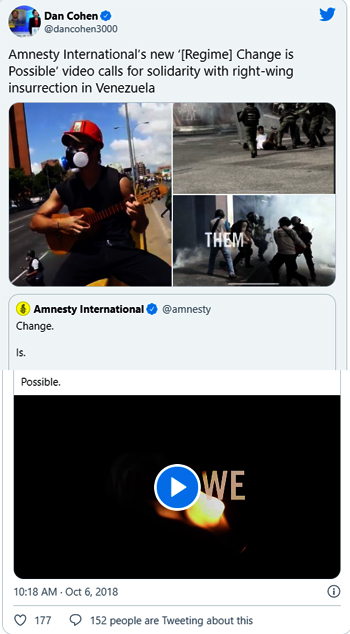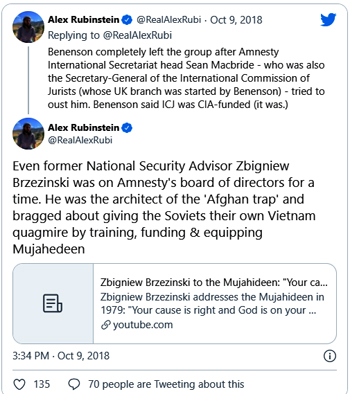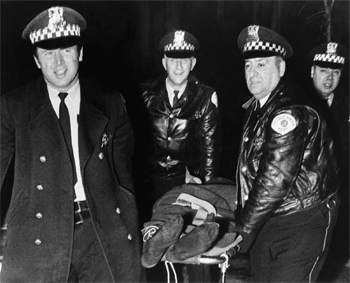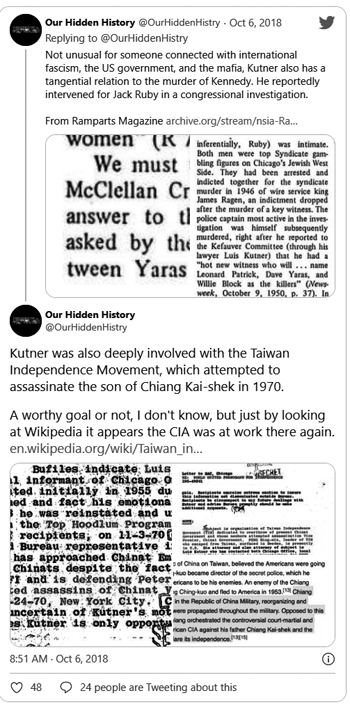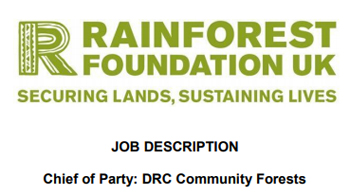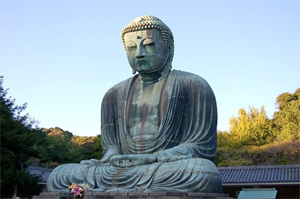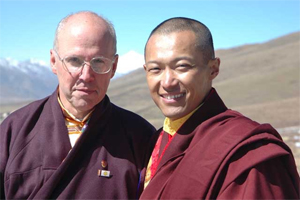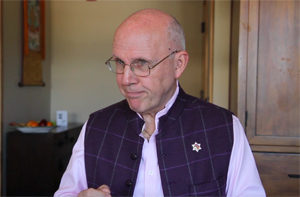by Andrew Merz, MDiv; Masha Mikulinsky, MA, LPC; Natan Cohen; Florence Gray; Diana Goetsch; Sean McNamara; Kara Deyle; A.B.
October 7, 2019
To whom it may concern,
This open letter discloses longstanding patterns of emotional and spiritual abuse within Dharma Ocean, the Buddhist community led by Reggie Ray. A copy of this letter has been sent to the Board of Directors of the Dharma Ocean Foundation.
The signers of this letter are former senior students, meditation instructors, dharma teachers, and key staff members within the Dharma Ocean organization. Many of us were involved with Dharma Ocean for at least a decade. The roles we held within Dharma Ocean gave us a great deal of direct and often near-daily access to Reggie Ray as well as to the inner workings of Dharma Ocean. Over the span of several years, most of us interacted with Reggie directly through formal staff roles during numerous intensive retreats up to a month in length. Some of us worked for months or years as paid Dharma Ocean staff members, participating in the operational functions of the organization. Most of us uprooted our lives to more closely support the vision of Buddhist practice and community that Reggie Ray presented. All of us have experienced and witnessed dynamics of emotional and spiritual abuse first-hand, and have left Dharma Ocean as a result.
This letter, while long contemplated, was finally written thanks to several courageous examples:
● The letter by former Rigpa students, exposing the many abuses of Sogyal Lakar;
● Buddhist Project Sunshine, which brought to light a long history of sexual misconduct, assault, and abuse of power in Shambhala International;
● The open letter by a group of senior Shambhala students (also known as the Kusung Letter) that shared first-hand accounts of grave misconduct and abuse.
The patterns of abuse exposed in the latter two of these letters closely mirrors the abuse outlined in this document; Reggie Ray created Dharma Ocean in 2005 directly after leaving the Shambhala organization, where he had been a senior teacher for many years. We write in solidarity with these survivors of abuse and we thank them for their courage, determination, and selflessness in coming forward.
We want to make clear that the dynamics described here have persisted over the course of Dharma Ocean’s existence, and have continued regardless and despite the good intentions of the specific individuals holding senior leadership positions at any given time. Some of us, in our staff roles, were knowingly or unknowingly participants in activities that harmed others. We acknowledge and have struggled to come to terms with the fact that we implicitly condoned and enabled these abuses through our ongoing long-term participation in this community.
Our aim in writing this letter is to uproot systemic patterns of abuse within Dharma Ocean. One of the cardinal rules of high demand groups is for narratives exposing unethical behavior and abuse to stay within the system, effectively enabling continued abuse. Creating a public record of these experiences is thus a principal reason for writing this letter. We believe that those connected with or considering participation in Dharma Ocean should have the opportunity to be informed about the history and prevalence of abuse.
Patterns of abuse have become inextricably woven into every level of Dharma Ocean, creating a culture of fear and secrecy, and enabling sustained abuse of power from those at the top of a deliberately curated hierarchy. While Dharma Ocean has presented an image of openness to feedback, those who have risked offering feedback, however skillfully delivered, have most frequently been attacked, discredited, and blamed. For the duration of Dharma Ocean’s existence, the brunt of these attacks and gaslighting tactics has fallen most on community members already holding marginalized sociocultural locations: students who are Black, Indigenous, and People of Color (BIPOC); Lesbian, Gay, Bisexual, Intersex, and Asexual (LGBIA) students; Transgender, Gender Non-Binary, Gender Non-Conforming students; women, and poor and working class people. Most of those who have attempted to give feedback or voice significant concern have been pushed out of the organization.
The forms of emotional and spiritual abuse perpetuated by Reggie Ray and, by extension, those in positions of leadership within Dharma Ocean, are commonly acknowledged as characteristic of high demand groups:
● grooming;
● love bombing new group members;
● questioning and doubt being discouraged or punished;
● public shaming of community members;
● a cycle of verbal abuse and triangulation in interpersonal communication;
● selective enforcement of rules/community norms; dissent framed in terms of spiritual immaturity/shortcomings;
● a pervasive culture of fear and paranoia;
● a charismatic leader insulated from any external accountability;
● reframing dissent or the loss of prominent members as proof of the worthiness and exceptionalism of the “in-group”;
● frequent public appraisals of other spiritual paths and communities, which were always found inferior by comparison with Dharma Ocean.
● the organization’s all-important ends justify its unethical means
Dharma Ocean’s Lies and Land Use Violation
This statement is written for Crestone residents, the Manitou Foundation, it’s land grantees, Dharma Ocean members, and other concerned parties.
During the winter of 2009/2010, I worked for Dharma Ocean Foundation (DOF) as Programs and Facilities Manager. At this time the organization was completing the planning stage of it’s new residence hall at what was then known as the Dharma Ocean Retreat Center (DORC).
The DORC, located at 2541 Carefree Way, Crestone, CO was built on land granted by the Manitou Foundation, which placed a conservation easement on the deed. In my understanding this easement was intended to protect the land from overdevelopment and overuse. One provision concerned the number of residential occupants that are allowed on a given parcel or building footprint (At this time I have been unable to procure a copy of the deed to confirm the exact wording).
Knowing that their plans for the residence hall exceeded these occupancy restrictions, Dharma Ocean leadership, including Reggie Ray and senior teacher / major donor Al Blum, commissioned blueprints that mislabelled the dorms in the basement. If I recall correctly, these cavernous rooms house up to 32 people. They are adjacent to large bathroom facilities and a kitchen. On the blueprints given to Manitou, the rooms were labeled “Storage.”
Al Blum instructed Dharma Ocean staff members, including myself, to lie to representatives of the Manitou Foundation at a meeting held to review the organization's application. When they predictably asked about the extraordinary amount of storage space on the plans, we verbally stuck to the lie that these rooms were intended for storage only.
While I cannot say whether we were believed, I walked away with the impression that we had executed a form of trickery that was careful, malicious, and quite typical for Reggie and Al.
The moment was one example of a culture of casual dishonesty, manipulation, and abuse on the part of Reggie, Al, and other Dharma Ocean leaders that I observed over several years working closely with them.
Natan Cohen
DOF Programs and Facilities Manager 2009-2010
Meditation Instructor 2009-2013
Protection Mandala 2010-2013
Member 2007-2013
The history of emotionally abusive dynamics and various forms of manipulation is well known anecdotally within the inner circles of Dharma Ocean and to many former Dharma Ocean members. A pattern of devoted students and staff members quietly leaving has existed, uninterrupted, since the beginning of Dharma Ocean. Most Dharma Ocean community members at large, however, never realize the severity of the dynamics of abuse and manipulation in the inner circle, and just how many people have suffered them and left.
As is commonplace in high demand groups, a member of the larger community could attend a number of Dharma Ocean programs and not notice the patterns described here. This is in part because of the ways systemic grooming operates, in part because abuse of power maintains plausible deniability through subtlety, and in large part because of a tremendous effort on the part of senior students to hide and shuffle responsibility for behaviors otherwise incongruent with the stated vision and principles of the organization.
Grooming within Dharma Ocean took multiple forms. When Reggie’s actions appeared to contradict the message and view he presented, Reggie would frame the incongruence in terms of a hierarchy of spiritual development. Those who were able to reconcile incongruence were deemed more spiritually advanced, as evidenced by senior student status and inclusion in Reggie’s inner circle. Newer members would naturally orient themselves to the reactions and explanations offered by senior students when making meaning of what is happening. While questioning and confusion were ostensibly welcomed, those whose concerns did not dissipate quickly enough were labeled as “too political,” “not ready yet,” unable to manage their “emotional upheavals,” or out of touch with their hearts/true nature. “Your practice just isn’t strong enough” was frequently employed by Reggie and others as a shaming and gaslighting tactic, to shut down critique and signal to others that the dissenter shouldn’t be taken seriously.
Anyone who served Reggie directly, either in program staff roles on retreat or as employees of Dharma Ocean, quickly learned that feedback is not welcomed or incorporated, even when it was explicitly requested. Loyalty and obedience are valued above all else, are constantly tested, and are taught through punishment of disloyalty. This happens in the context of teachings that reinforce an insider/outsider split: that the world desperately needs these practices and only we can deliver them, that all other approaches are inferior and lacking, and that we are special and fortunate for having found these teachings and have a responsibility to bring them to the world. The notion that we can only get this here—the truth about reality, and the spiritual practices we need to relate to it—is a core teaching in Dharma Ocean, and makes dissent and the decision to leave very difficult, if not unimaginable.
Progressive inclusion in Reggie’s inner circle was evidence of special status; many community members longed for more access to Reggie. Those who voiced criticism about him or some aspect of the organization were often swiftly (and at times unbeknownst to the person themselves) excluded from the inner circle and the program staff roles that are the testing ground for it. Fear of losing their place in the coveted inner circle often prevented members from voicing questions or criticism about behavior they witnessed.
Reggie constantly used triangulation to manipulate students, manufacturing rumors and making students doubt themselves. He would harshly criticize a student to others in a staff meeting, and then blithely say something entirely different to the student he had just defamed. It was common for Reggie to make up tidbits of information about a person and ask them about it to their face to see how they would respond. Even after someone left the community, Reggie frequently continued this behavior, for instance by feigning ignorance about why they left to that former student’s friends, asking “What ever happened to them?” or by rewriting the narrative of their involvement, saying “they were never really that devoted.”
A culture of paranoia, fear, and shame was rampant. The threat of being removed from the inner circle by Reggie without apparent or stated reason was always present. For many years Dharma Ocean maintained an unofficial “blacklist” of students whom Reggie had deemed no longer suitable to hold formal roles within the organization. The existence of the blacklist, the names on it at any given time, and any reasons for students being blacklisted was known only to select Dharma Ocean staff members and Reggie’s close confidants.
Reggie’s inner circle was exclusively people who had sufficiently proven their allegiance and who could therefore serve as effective buffers from substantial criticism within the organization, by both actively quelling others’ doubts as they arose, and by serving as an exemplar of the loyal and therefore successful student. As soon as they were unable to perform this role, or developed doubts of their own, they were demoted or cast aside, with the exception of major donors, who were generally given more leeway.
Being a self-appointed guru, Reggie faced no oversight or accountability, and his decisions in all aspects of the organization were the final word if he so chose. The Board of Directors of Dharma Ocean, for example, has consisted of Reggie’s appointees, all senior students, for the duration of the organization’s existence. When a group of senior students formed a committee to examine and address issues of Equity and Inclusion within Dharma Ocean and offered suggestions/critique he did not agree with, Reggie swiftly dismantled the group, disparaged and criticized the character, spiritual practice, and devotion of its members, and replaced all but one of the committee members with his own appointees.
Public shaming, criticism, and manipulation of staff members and students was common during intensive meditation retreats and day-to-day operations of Dharma Ocean. It was not unusual to see senior staff members in tears or actively distraught after suffering brutal verbal attacks in meetings with Reggie. Students were often afraid to comment or ask questions during programs, having witnessed the unpredictability with which kindness could turn to viciousness in Reggie’s responses. Lapses in behavior or allegiance would be framed as spiritual inadequacy or immaturity, with phrases like “they couldn’t handle the heat” and “this path isn’t for everyone” used to explain why a student may have distanced themselves, left, or been asked to leave after an episode of emotional abuse. A common refrain was that certain students were a “distraction to the container” and were thus asked to leave. Those who dared to question this view were routinely shamed and ridiculed. The implication was clear: those who could not handle the emotional abuse were not ready for the teachings. Those who stayed were the more determined and more spiritually advanced students.
In his relationships with close students, Reggie was constantly repeating a cycle: scathing verbal abuse, quickly followed by love-bombing, then distancing, and inevitably lashing out again, over often small transgressions. When a senior student would leave, having endured emotional and spiritual abuse for many years, Reggie’s narrative would often center his own feelings of betrayal and hurt, or portray calculated indifference. Having witnessed others disappear from the organization and be publicly and privately disparaged by Reggie Ray, at times even from the teacher’s seat during a retreat, most of us feared that fate. It was painfully obvious that if or when we left, whatever we did or said to him or others would be used against us for his purposes of controlling the narrative. Any attempt to counter or even discuss a narrative Reggie had formed of you, most often based on incomplete information gathered from others, would be regarded as being "dramatic," “just your ego talking,” “territorial,” or “controlling the space.”
Reggie used a striking variety of tactics to maintain control, most often at his students’ cost. One of the most pernicious was the deliberate misuse/misrepresentation of intimate information shared with him in confidence. On retreats, the explicit norm was: everything is welcome in this space; it is safe to bring forward the wounded parts of yourself to work with, the staff and teachers will support you. The implicit norm, however, was: anything that you share, especially where you’re most vulnerable, may be used against you. There was no such thing as confidential communication in the organization—all potentially relevant information, however inconsequential, made its way up the chain of command. The more dirt you had to share, the more useful you were. Driving this was an intense paranoia accompanied by an incapacity to even hear, much less consider, critical feedback. Such material was labelled “poisonous,” the result of someone “losing confidence in the situation.”
As Reggie euphemistically put it, “there are no secrets in the village.” Staff members who attempted to maintain confidentiality were inevitably coerced or cajoled into sharing what they knew about others. Reggie was known to publicly disclose incredibly intimate information about a group member when that person stepped “out of line,” even when the information had been shared with him in private under an expectation of confidentiality between teacher and student. This clear breach of the common standard of clergy confidentiality is another example of Reggie operating beyond accountability, putting himself ahead of the wellbeing of his students, and eschewing any semblance of the minimum ethical standards reasonably expected of a person in a position of spiritual authority.
The lack of accountability that applied to Reggie was mirrored by the organization’s lack of an impartial process for making or investigating a formal complaint about any community member’s conduct. The enforcement of rules and doling out of punishment was generally based on the status of Reggie’s relationships with the person perpetuating the dynamics and his esteem for the person most directly impacted. It frequently came down simply to who was more useful to him; he generally favored the person higher up in the hierarchy. It wasn’t unusual for victims who turned to leadership for support to be encouraged to focus on their own practice instead of on the abusive behavior. Rarely were steps taken to rectify or address the abusive behavior or offer support to the victim. Those impacted were often given the choice to leave, or to stay and simply endure the continued abuse.
For instance, when students in leadership positions made inappropriate sexual advances on retreat participants, which was was only eventually forbidden in a staff code of conduct, Reggie and senior leadership might playfully condone the behavior, respond with a slap on the wrist, or if necessary, publicly shame or demote the person in leadership. Certain community members, generally cis-gendered, heterosexual, white men, and others deemed most loyal and therefore useful in this system, were given de facto carte blanche to repeatedly perpetuate self serving, emotionally abusive dynamics from positions of power without any real consequences. When someone in the staff role of head chef, for instance, repeatedly verbally abused kitchen work-study folks who were only able to afford retreat by holding the work-study position, not only was the typically male head chef never removed from the role, even temporarily, but those same individuals were invited to hold that role again and again, over the course of a decade.
For those in the inner circle, who suffer the most under this abusive system, the impact is significant whether one stays or leaves the organization. Many of those who have left report an unparalleled devastation: loss of community, loss of a spiritual path and tradition, loss of worldview, loss of meaning and purpose, splintering of identity, profound betrayal by a trusted teacher, and for many a retraumatization and reenactment of abusive patterns experienced earlier in life. Those who worked for Dharma Ocean are faced with loss of income, in addition to the profound social and emotional costs. As with any abuse, the impact continues and requires tending long after one is no longer part of Dharma Ocean. Most have left silently, faced isolation as their narratives were erased from the fabric of the organization, and were left to grapple alone with the devastating aftermath of emotional and spiritual abuse in their own ways. For many of us, the draw to Dharma Ocean had come from a need and genuine inspiration to follow a spiritual path. This, of course, is precisely the vulnerability exploited by spiritual abuse.
We want to make clear that the aforementioned dynamics have persisted over the course of Dharma Ocean’s existence, and have continued regardless and despite the good intentions of the specific individuals holding senior leadership positions at any given time. Some of us, in our staff roles, were knowingly or unknowingly participants in activities that harmed others. We acknowledge and have struggled to come to terms with the fact that we implicitly condoned and enabled these abuses through our ongoing long-term participation in this community.
This letter is written in solidarity with and support of those who have who have left Dharma Ocean or other communities like it. The culture of collective amnesia and minimization regarding emotional abuse has persisted within the organization, but there are now many of us on the outside ready and able to share our experiences and support one another. This letter is additionally intended to be a formal acknowledgment and validation of the individual accounts/narratives that have increasingly begun to surface in public spaces, such as recent anonymous accounts posted on Reddit and this account of unethical business dealings.
If you have experienced spiritual and/or emotional abuse in Dharma Ocean and would like to add your name to this letter or just connect with us, please write to us at this email address:
[email protected]
Sincerely,
Andrew Merz, MDiv; Reggie Ray's Personal Assistant 2012-2013; Editor for Reggie and Dharma Ocean 2012-2015; Assistant to Board Chair 2013-15; Meditation Instructor 2008-2015; Protection Mandala* staff 2011-2015; studied with Reggie 2005-2015.
Masha Mikulinsky, MA, LPC; BMRC Facilities Staff & Solitary Retreat Cabin Caretaker 2012-2013; Lead Cook 2010-2013; Meditation Instructor 2012-2015; studied wtih Reggie 2005-2015.
Natan Cohen; DOF Programs and Facilities Manager 2009-2010; Meditation Instructor 2009-2013; Protection Mandala* staff 2010-2013; studied wtih Reggie 2007-2013.
Florence Gray; Dishwasher 2006-2017; Transcript Clerk 2010-2017; studied with Reggie 2006-2017.
Diana Goetsch; Reggie Ray's editor on various projections 2009-2015; Protection Mandala staff 2010-2014; Inclusivity Mandala 2015-2017; Lead Meditation instructor at Dathun** 2015-2017; studied with Reggie 2007-2017.
Sean McNamara; Senior Teacher 2008-2015; Retreat teacher; Summer Meditation Intensive 2012, 2013, 2014; Meditation Instructor 2003-2015; Dharma Ocean Board Member 2010, 2012; Retreat Center Building Manager 2012; studied with Reggie 2000-2015.
Kara Deyle; Dharma Ocean Program Manager 2013-2016; studied wtih Reggie and held a variety of program roles including Protection Mandala and Meditaiton Instructor 2008-2016.
A.B.; Dharma Ocean Operations Manager 2009-2011; DOF Administrative Assistant 2008-2009; studied wtih Reggie 2008-2011.
* Protection Mandala describes a team of uniformed staff members during retreats who serve as close attendants to Reggie or other teachers and oversee the safety and security of a retreat and its participants, aka kusung and kasung
** A dathün is month-long intensive retreat
Links and Resources
If you have experienced abuse within Dharma Ocean and written an account that is publicly available, please be in contact with us. Relevant resources will continue to be added here.
● Rigpa Letter
● Project Sunshine
● Kusung Letter
● A former DOF employee’s account of unethical business dealings
● A Reddit thread containing multiple anonymous accounts of abuse in Dharma Ocean
● Matthew Remski writes about high demand spiritual groups







